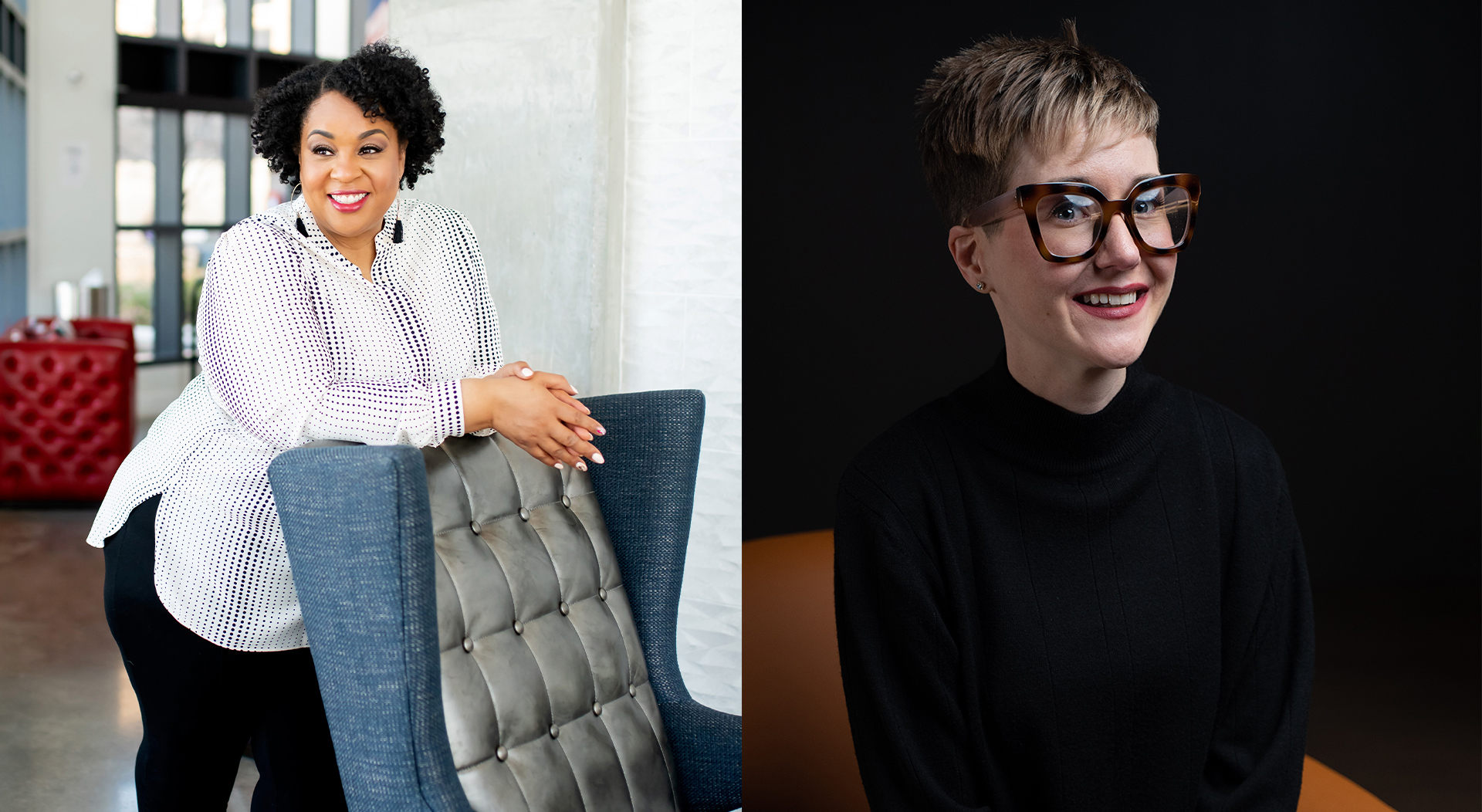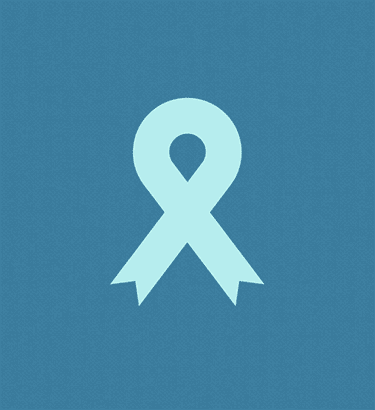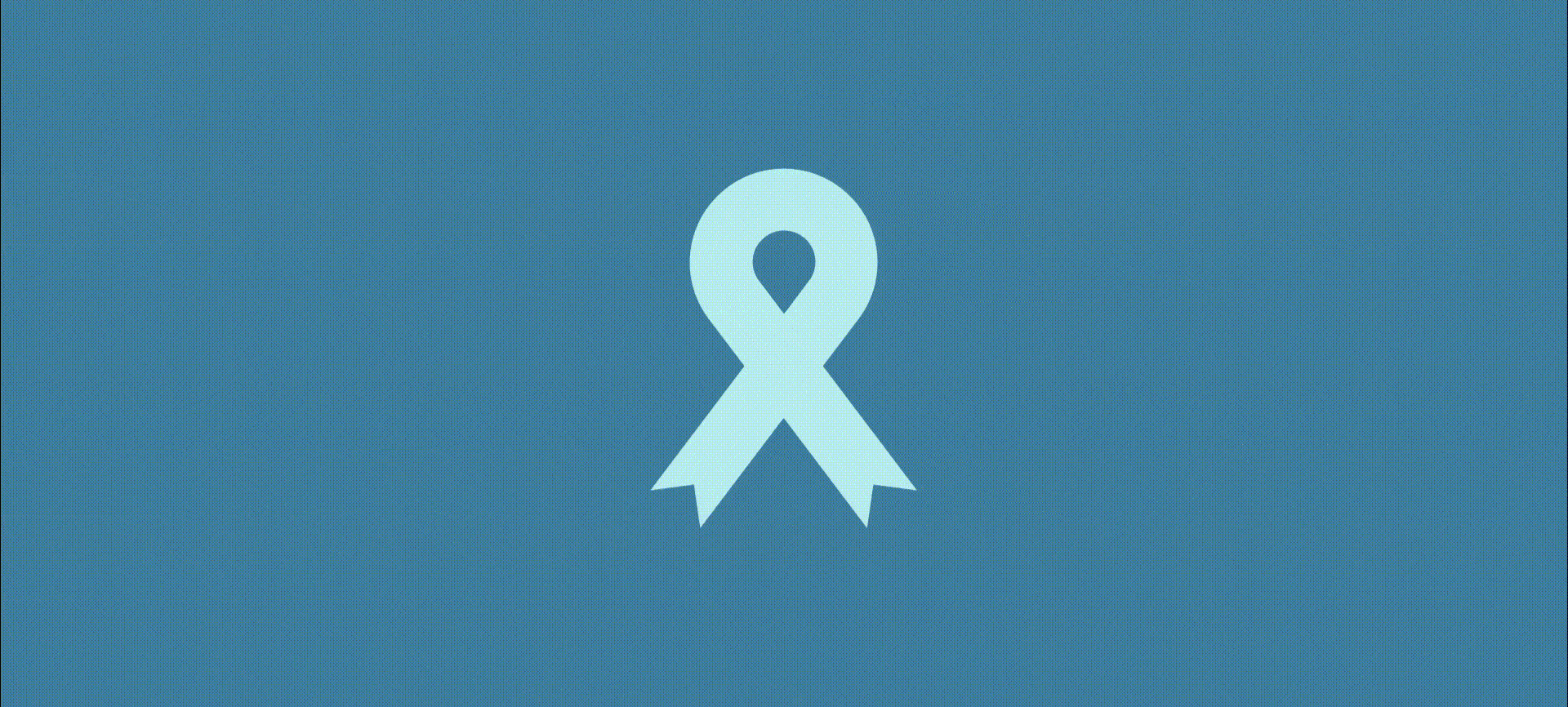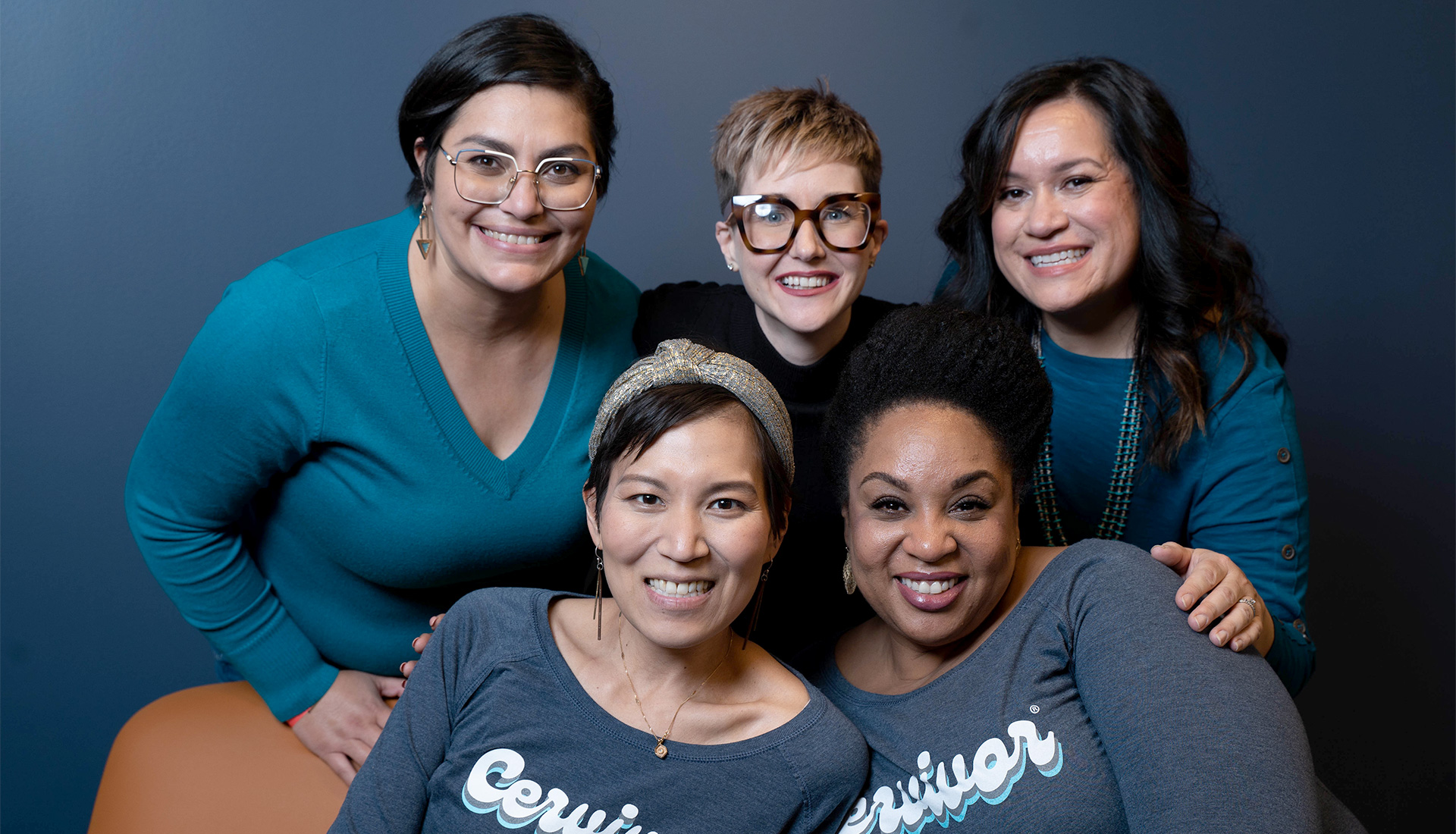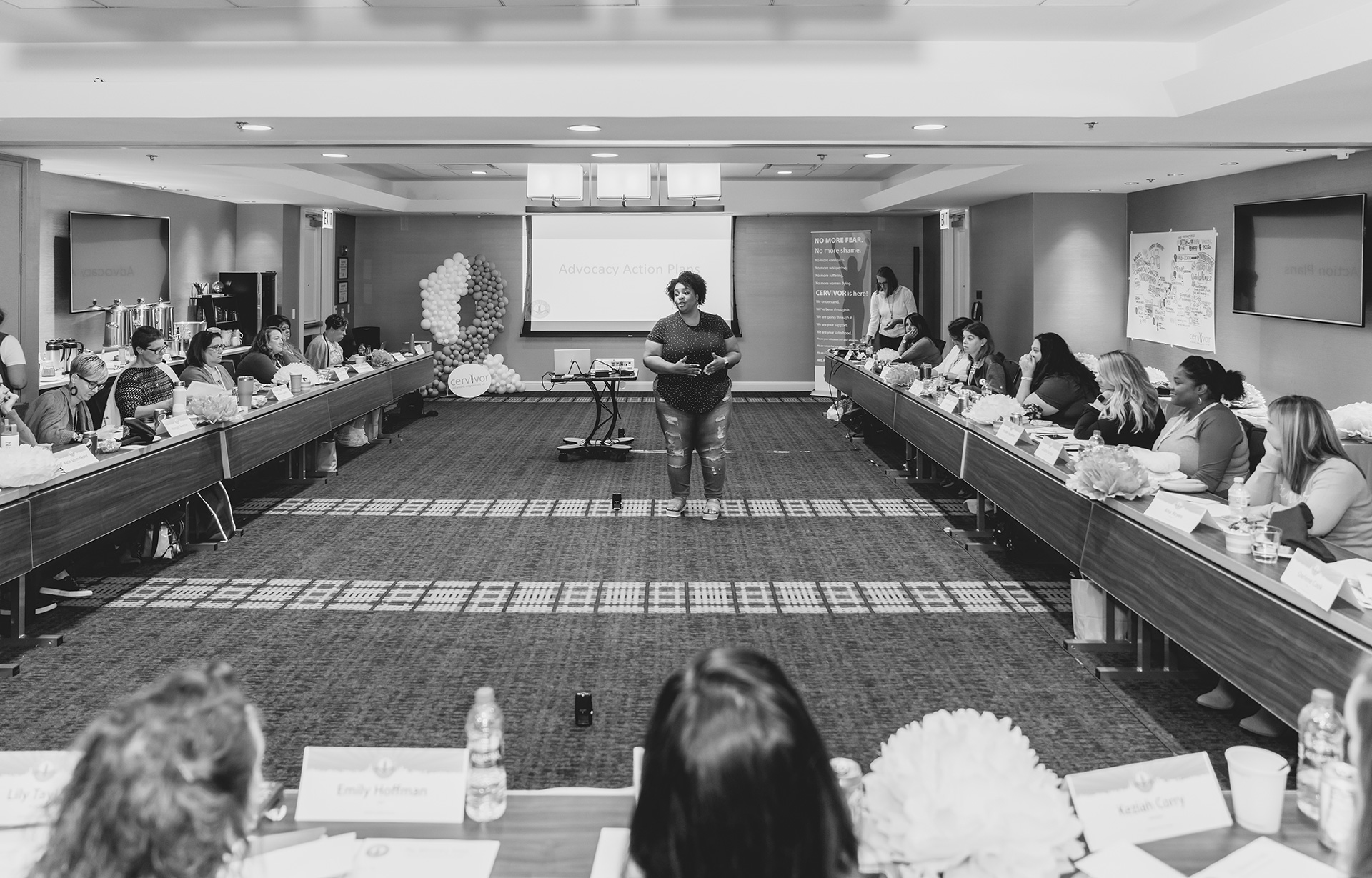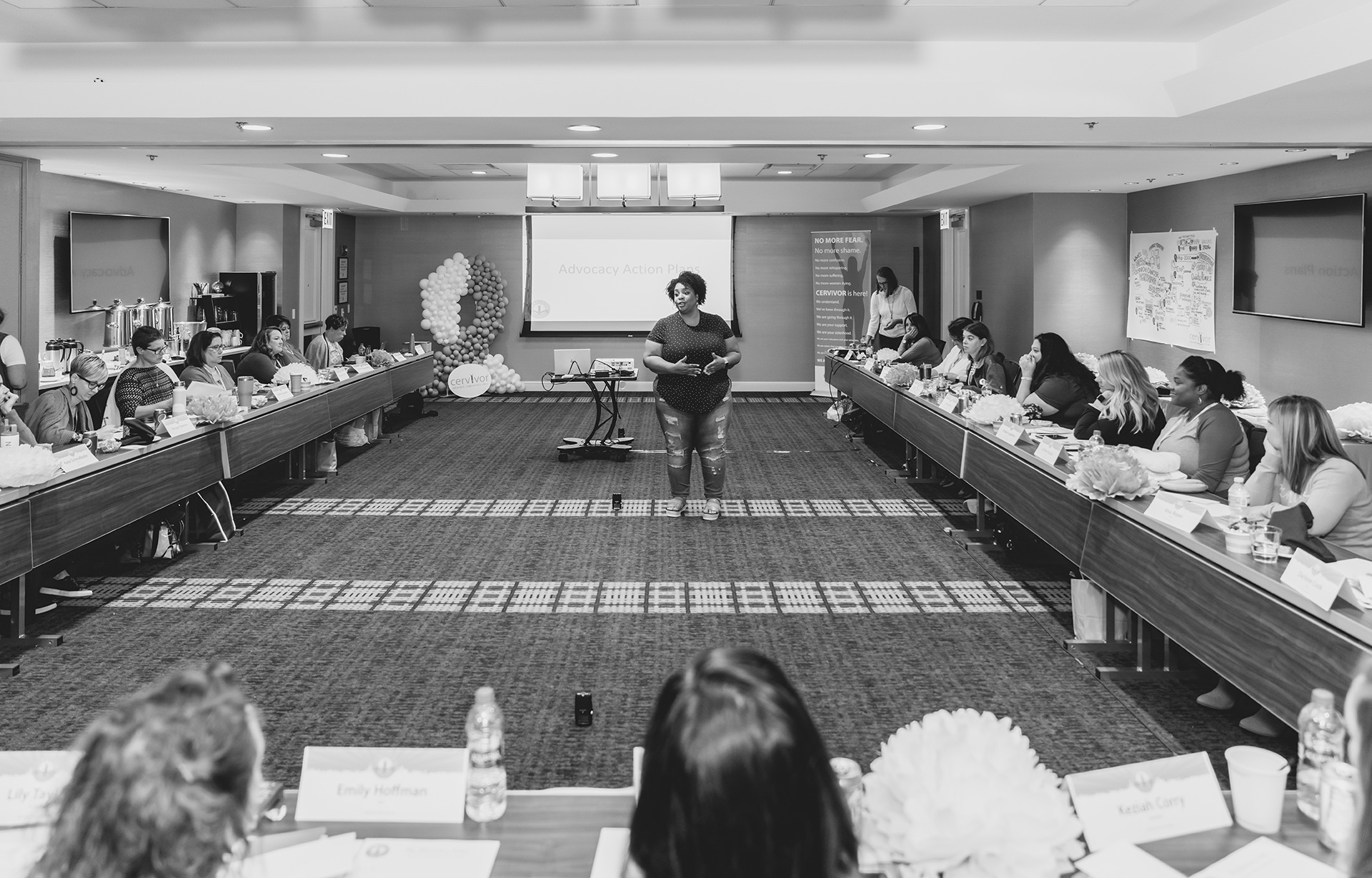Tamika
In 2001, when I was 25, I was diagnosed with cervical cancer. I wasn't expecting it and it didn't make sense to me.
I was working as a broadcast journalist at the time. There are times when you have health insurance and times when you don't, and at 25, insurance wasn't something that I cared about—I just wanted to work this career I'd always wanted. So when I got the diagnosis, it was a complete shock to me, and I didn't believe it.
I got a lot of second opinions because I kept thinking, Somebody is going to see these doctors don't know what they're talking about and all these tests are wrong. I know now I was just looking for someone to say everybody else got it wrong.
But I did, in fact, have cervical cancer. I had to have a radical hysterectomy followed by chemotherapy and radiation therapy. When I was in the thick of my own existence with cervical cancer, it was horrific, it was traumatizing. As I met other people and I learned more about their stories, it seemed like, compared to them, I had a cakewalk.
What I've learned from creating this organization is it doesn't matter if you're a stage zero, stage four, terminal—whatever you are—when you hear those three words, "You have cancer," it is truly life-altering.
Morgan
I was 24 when I was diagnosed for the first time, and I ended up going through a metastatic recurrence in my lungs. Throughout all of it, I did not have the support of a survivor community. I was always the youngest person in the infusion center and on the gynecologic floor.
I had plenty of support from my family and friends, just not other survivors. The only other ones that I knew of, who had gone through a cancer diagnosis, were no longer with me. So, that really stuck with me and I thought my fate was, I'm going to die. Especially being diagnosed for the second time.
But then I stumbled across Cervivor on Instagram by their hashtag. And I saw they had values that aligned with my values and they were offering a patient advocacy retreat in Florida. So, I signed up for that and fundraised my way there because I was willing to take a chance.
As soon as I got there, it was like a breath of fresh air, knowing that so many others have been through what I've been through. That was back in 2017, and since then, I've become a Cervivor Ambassador. I really worked my tail off in advocacy here in Iowa, where I live, and I ended up receiving the Cervivor Champion Award from the organization. I have a really great partner ambassador here to help me. She's a cervical cancer survivor, too, and lives just eight minutes down the road from me, so we do a lot of teamwork together.
I've actually been in school for social work, and being a professional advocate went hand-in-hand with what I was doing. It really molded me into who I am. I graduated with my master's in May and I joined Cervivor about a year ago as the community engagement liaison. So I'm helping with the programming and support, along with everything else.
It's just a true testament to what Tamika does, what we do, along with all of our community members.
